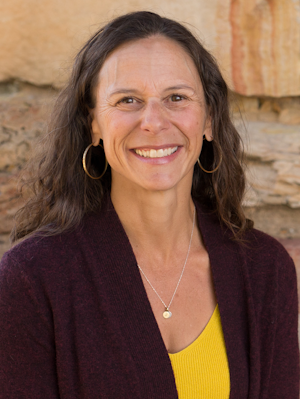Sticky Situations and Satisfying Solutions in Clinical Supervision
Enroll in the Online Self-Study and complete the training on your own schedule.
3 CE hours available for behavioral health clinicians
Supervisors face some of the toughest interpersonal dynamics in behavioral health—navigating resistance, managing feedback, and supporting struggling clinicians—all while safeguarding client care and professional ethics. When supervision gets sticky, you need practical tools, not just theory.
In this self-paced training, you'll gain clear, actionable strategies for addressing challenges in supervision that most courses overlook. You’ll walk away with renewed confidence to navigate complex situations with clarity, courage, and compassion.
Lead tough supervision moments with skill.
Enroll in the 3 CE Online Self-Study for $97
Payment Options are listed at checkout
Register for the 0 CE Training Video for $48.50
Payment Options are listed at checkout
Amie Bryant, LCSW, CAS, ACS, brings a wealth of real-world expertise to this course. As a licensed clinical social worker, addictions specialist, EMDRIA consultant, and approved clinical supervisor, she has spent over two decades mentoring clinicians across multiple systems—from private practice and integrated care to university counseling centers and community mental health.
With a relational approach rooted in cognitive behavioral therapies, Amie equips supervisors to navigate discomfort, foster growth, and model professionalism—even when facing resistance, cultural differences, or parallel process. Her teaching emphasizes humility, reflection, and skillful communication as the foundation for effective supervision.
This course dives into supervisory challenges like unclear expectations, supervisee resistance, competence concerns, countertransference, and theoretical mismatches. You'll also learn how to deliver feedback constructively, repair ruptures, and initiate courageous conversations that lead to meaningful growth. Finally, you'll develop a framework for implementing supervision action plans with integrity and kindness.

Instructor
Amie Bryant is a Licensed Clinical Social Worker, Certified Addictions Specialist, EMDRIA Certified Therapist and Approved Consultant, and Approved Clinical Supervisor, specializing in work with adults and older adolescents. She has been in private practice for over 10 years and also spent 10 years working at the Fort Lewis College Counseling Center as a counselor, Training Coordinator for the Graduate Clinical Training Program, and ultimately as Director of the Center. Her previous experience includes work in schools, integrated healthcare, wilderness therapy, juvenile detention, emergency services, adult outpatient mental health, substance use treatment and prevention, and as Adjunct Faculty for the University of Denver Graduate School of Social Work Four Corners Program.
She is passionate about working with people to improve wellness by supporting them in developing a strong and healthy sense of self. Using a relational approach to cognitive behavioral therapies, she believes that through the therapeutic relationship, acquiring skills and knowledge, and increasing self-awareness and understanding, we can learn to respond to our difficulties and discomfort rather than react to them.
You can find Amie at Four Corners Counseling,Training, & Consultation
Key Takeaways:
- Navigate supervision challenges: Learn how to respond effectively to resistance, rupture, and interpersonal complexities.
- Enhance your communication skills: Discover how to deliver feedback and engage in courageous conversations with clarity and care.
- Support supervisee growth: Implement action plans and promote accountability without sacrificing connection or compassion.
Why this course?
- Real-world insight from a trusted leader: Learn from Amie Bryant, a seasoned supervisor with decades of hands-on experience in diverse behavioral health settings.
- Tools you’ll actually use: This course provides practical solutions—not just theories—for real challenges you face in supervision.
- Designed for your success: Created by the Telehealth Certification Institute, whose mission is to empower healthcare professionals through exceptional CE training and support.
Learning Objectives:
- Identify potential challenges and common errors in individual and group supervision.
- Define the concept of rupture/repair in clinical supervision.
- Practice having courageous conversations.
- List the key components of implementing an action plan.
You don’t have to supervise in isolation. Let this expert-led, self-paced course equip you with the knowledge, strategies, and confidence to lead with clarity—even when supervision gets sticky.
Enroll today to develop your skills, boost your confidence, and enhance your impact as a behavioral health professional.
This is a non-interactive, self-study course. Instruction consists of 3 hours of video instruction and a post-test.
Select each tab for course details
Availability: From the time of registration, you have six months to access the coursework.
Who Should Attend: This course is intended for clinicians who provide behavioral health services, particularly those who are supervisors or have an interest in supervision.
Teaching Methods: This is a non-interactive, self-study course. Teaching methods for this course include recorded lectures, videos, a post-test, and a course evaluation.
How to attend: Directions for completing a course can be found by clicking here.
This program was recorded January 23, 2025.
Testimonials
Bridgette Nalumu
Public health consultant, Green and Purple Consultancy Network
Lora Verley
Clinical Therapist, Bayless Integrated Healthcare
Jackie Tanna
Therapist, Region One Mental Health
Jackie Bell-Russell
Therapeutic Behavioral Strategist, Rialto Unified School District